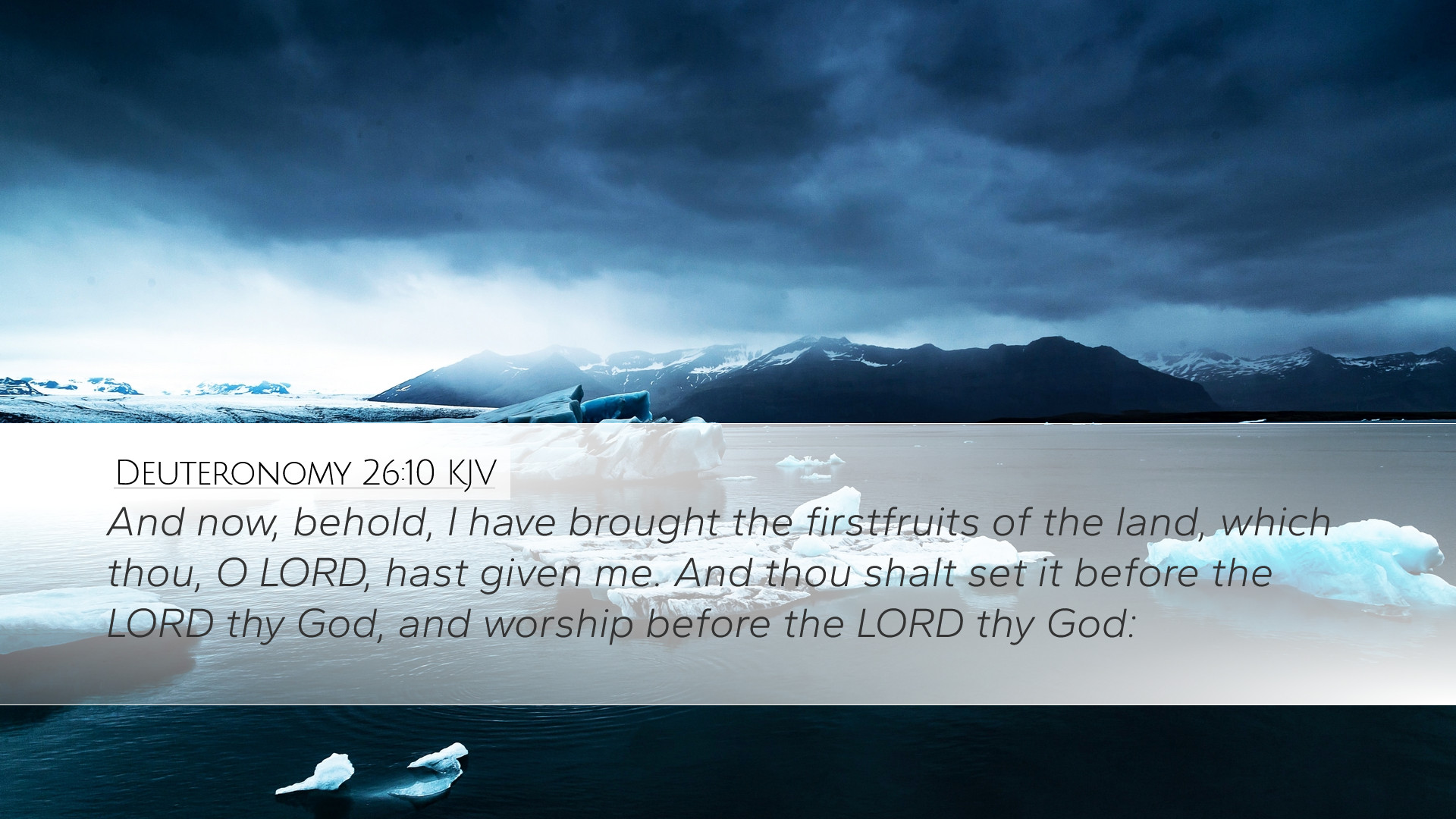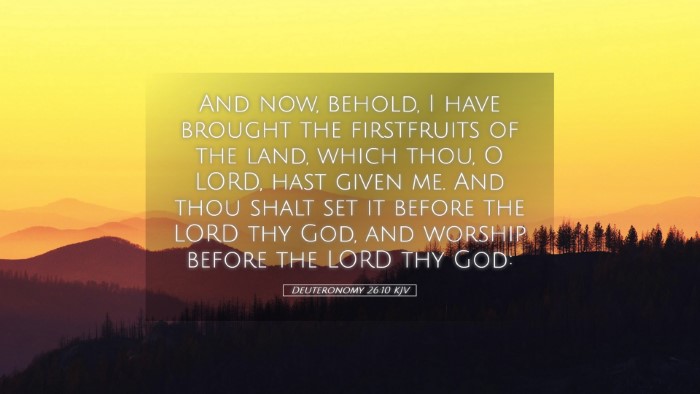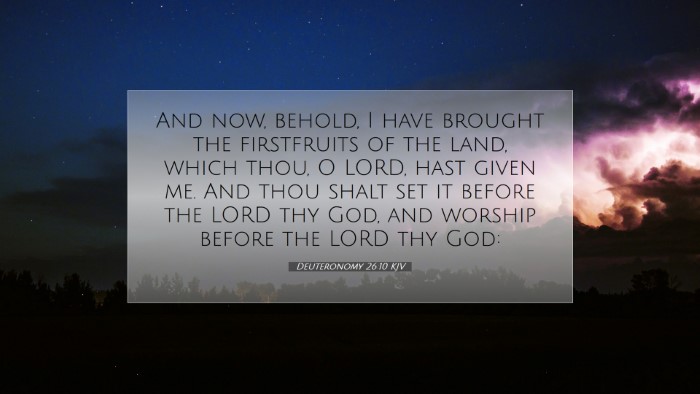Commentary on Deuteronomy 26:10
Bible Verse: "And now, behold, I have brought the firstfruits of the land, which thou, O Lord, hast given me: and thou shalt set it before the Lord thy God, and worship before the Lord thy God."
Introduction
This verse encapsulates a significant moment in the ritual practices of ancient Israel. It highlights the act of gratitude and acknowledgment of God's provision, serving as a foundation for worship that is rooted in both thanksgiving and the recognition of God's sovereignty. Various public domain commentators provide in-depth insights into its theological implications and practical applications for believers today.
The Call to Acknowledge God's Provision
In Deuteronomy 26:10, the act of bringing the firstfruits is a profound gesture of reverence and gratitude. As Matthew Henry points out, this command not only reflects a deep recognition of the land as a gift from God but also serves as a declaration of dependence on Him for sustenance. The firstfruits were the initial harvest, symbolizing the best and the very first that one has received, which denotes offering the best of what one has back to God.
Significance of Firstfruits
- Expression of Gratitude: Offering firstfruits acknowledges God as the source of all blessings.
- Theological Implication: It serves as a reminder of God's providential care and covenant promises.
- Community Practice: This act fosters a sense of community among the Israelites as they collectively recognize God's blessings.
The Act of Worship
Worship is central to the Israelite identity, and as noted by Albert Barnes, this verse illustrates how tangible acts of gratitude tie back to the overarching theme of worship. The instruction to 'set it before the Lord' indicates a communal aspect of worship, reinforcing that offerings should be presented in a sacred space, often done in the presence of the community to celebrate God's provision.
Elements of Worship Involved
- Physical Action: The act of bringing firstfruits illustrates worship that is active and specific, not merely an internal feeling.
- Spiritual Connection: Setting the offering before God fosters a deeper communal engagement and understanding of one's relationship with the Divine.
- Ritual Importance: Such practices reinforce the cultural identity of the Israelites and their covenantal relationship with God.
The Theological Theme of Ownership
As the verse states, "which thou, O Lord, hast given me," it leads to a critical discussion on divine ownership. Adam Clarke expounds on the idea that everything we possess is ultimately a gift from God. This understanding shapes one’s attitude toward gratitude and stewardship.
Implications of Divine Ownership
- Response to Giving: Recognizing God's ownership leads to a heart posture of giving freely and generously.
- Stewardship: It instills a sense of responsibility to manage what God has entrusted to individuals wisely.
- Countering Materialism: Acknowledgment of God’s sovereignty counters the temptation to view material possessions as purely personal achievements.
Conclusion
Deuteronomy 26:10 serves as a vital reminder to believers of the graciousness of God’s gifts and the necessary response of worship. Commentators like Matthew Henry, Albert Barnes, and Adam Clarke challenge us to view our own offerings and worship in light of God’s provision and to cultivate a heart of gratitude. As pastors, students, theologians, and scholars, it is essential to carry forward these insights into our practice of faith, ensuring that our worship remains rooted in reverence and acknowledgment of God’s abundant grace.


